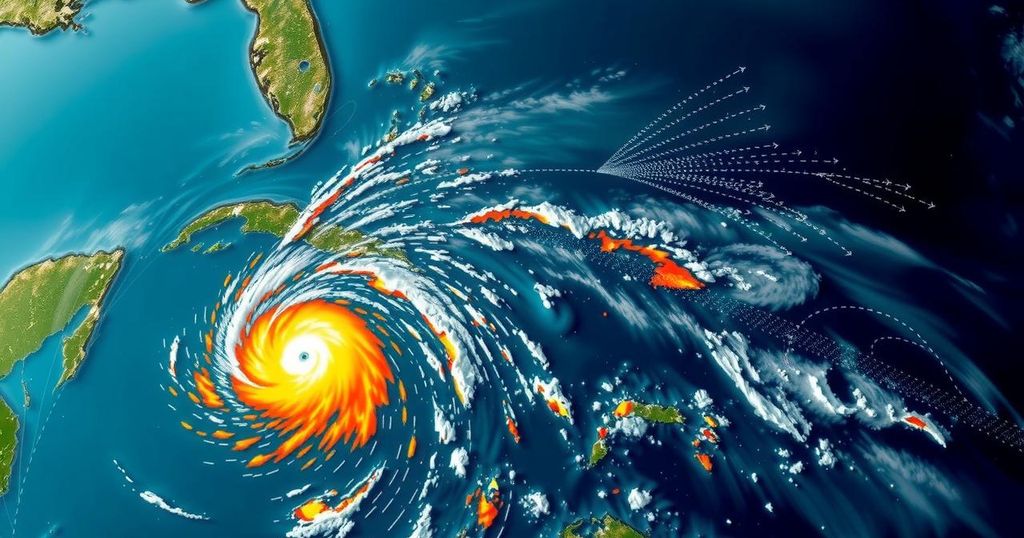Overview of the 2024 Atlantic Hurricane Season: Records and Climate Impacts
The 2024 Atlantic hurricane season was highly active, with 18 named storms, 11 hurricanes, and five major hurricanes recorded, despite a lull in the mid-season. Hurricane Beryl marked an extraordinary start, but activity subdued until Hurricane Helene’s devastating return. Climate change significantly influenced storm intensity.
The 2024 Atlantic hurricane season has concluded, characterized by notable activity and unprecedented occurrences. Over the season, there were 18 named tropical storms, 11 of which intensified to hurricane status, and five achieving major hurricane classification, which is defined as category three or higher. This active season deviated from the average, which typically records 14 storms, seven hurricanes, and three major hurricanes. Although certain records were matched or surpassed, the distribution of activity throughout the season was not uniform, with a particularly sluggish middle period.
The season commenced with strong forecasts predicting an above-average activity level, described by some meteorologists as ‘extraordinary.’ This sentiment was quickly validated when Hurricane Beryl emerged as the earliest recorded category five hurricane on July 2, resulting in severe devastation and numerous casualties in the Caribbean and southern Texas.
However, following Beryl’s dissipating path, the Atlantic basin experienced a significant lull. Despite the quieter conditions, the sea surface temperatures remained consistently high, typically a precursor for hurricane formation. This hiatus in activity, particularly unusual considering the warm ocean currents and the anticipated end of the El Niño phenomenon, indicated that various meteorological conditions played a significant role in limiting hurricane development.
A resurgence of activity commenced in late September with the development of Hurricane Helene, which rapidly intensified into a category four storm upon landfall in Florida. Helene became the deadliest hurricane to impact the continental U.S. since Hurricane Katrina, resulting in over 150 fatalities. Following Helene, five additional storms developed in a short succession, leading to four hurricanes, including Hurricane Milton, which showcased one of the most significant rapid intensification incidents ever recorded.
Interestingly, Tropical Storm Sara marked the season’s conclusion, bringing significant rainfall to Central America, although it did not escalate to hurricane status. This season underscored the increased risk attributed to climate change, evidenced by the higher sea surface temperatures linked to more potent hurricanes. Studies have demonstrated that maximum wind speeds in Atlantic storms this year were exacerbated by climate change, with Hurricane Milton experiencing wind speeds enhanced by 23 mph as a consequence of global warming.
In essence, while the overall frequency of hurricane occurrences may not increase, their intensity and precipitation levels are likely to rise, presenting heightened threats to affected regions.
The Atlantic hurricane season, spanning from June 1 to November 30, typically sees its peak activity in early September. In recent years, climate change has significantly impacted weather patterns, leading to warmer ocean surface temperatures, which in turn fuel hurricanes. Understanding the connection between climate change and hurricane dynamics is essential for forecasting and preparing for future storms. The 2024 season exhibited unusual patterns, prompting analysis of the environmental factors influencing storm activity.
The 2024 Atlantic hurricane season proved to be notably active, breaking records despite a mid-season lull. It demonstrated the intricate relationship between environmental conditions and hurricane formation. The increased intensity and rainfall associated with these storms are strongly linked to climate change, highlighting the urgent need for preparedness and response strategies in vulnerable regions.
Original Source: www.bbc.com




Post Comment